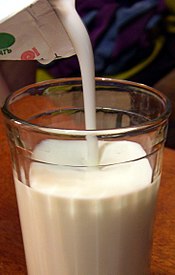1. Probiotics:

The Probiotics in Milk Kefir are live bacteria and yeasts that are beneficial for gut health. They can help to improve digestion, boost the immune system, and reduce the risk of some chronic diseases.
Milk kefir is a good source of probiotics because it is made with kefir grains, which are a symbiotic culture of bacteria and yeasts. Milk kefir is beneficial for gut health.
Probiotics can help to improve digestion, boost the immune system, and reduce the risk of some chronic diseases.
2. Antioxidant Properties Of Milk Kefir
Milk kefir is also a good source of antioxidants, which can help to protect the body against damage from free radicals. Free radicals are unstable molecules that can damage cells and contribute to the development of chronic diseases such as cancer and heart disease.
3. Nutrients
Milk kefir is a good source of calcium, phosphorus, potassium, and other important nutrients. These nutrients are essential for good health and can help to prevent or manage various health conditions. For example, calcium is important for bone health, phosphorus is important for energy metabolism, and potassium is important for blood pressure regulation.
4. Taste

Milk kefir has a slightly sour taste that some people find appealing. It can be enjoyed on its own or used in recipes. Some popular ways to enjoy milk kefir include sweetening it or flavouring it, much the same as yoghurt. You can drink it as a beverage, add it to smoothies, or add it to yoghurt.
5. Safety
Milk kefir is generally safe for most people to consume. However, it is important to note that milk kefir can contain small amounts of alcohol. People who are allergic to dairy products should avoid milk kefir.
People who are allergic to dairy products should let their Milk Kefir mature a little longer and start consuming it in small quantities to test it.
Conclusion
If you are interested in learning more about milk kefir, there are many resources available online and in libraries. You can also talk to us for more information.

